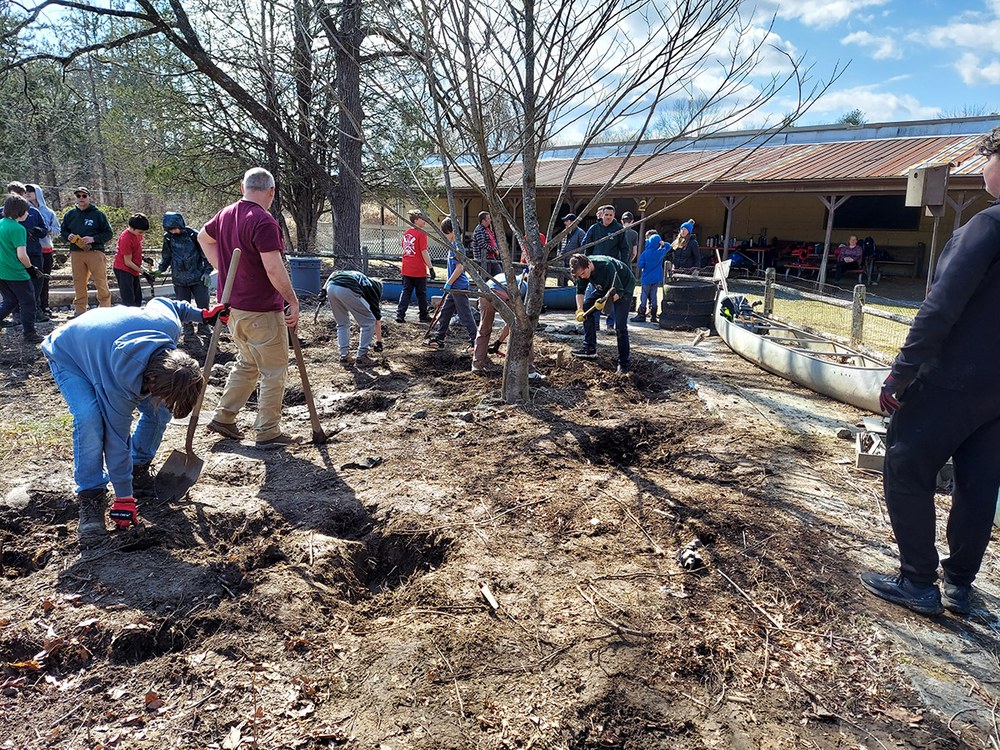Posted: April 1, 2025
Discover the new pollinator garden at the Pocono Environmental Education Center, created by the Penn State Extension Master Gardeners of Pike County. This project is made possible through a grant from the Department of Environmental Protection.

Boy Scouts and Master Gardeners cleaning a garden bed. Photo by S. Detrick
As part of a grant project, Pike County Master Gardeners and Boy Scout Troop 72 of Abington, PA worked together on Saturday, March 22 to clean out an old garden at the Pocono Environmental Education Center (PEEC) in Dingmans Ferry, PA.
In two hours, 25 boy scouts and their troop leaders helped the Master Gardeners cut down pawpaw tree saplings, dug up invasive honeysuckle, and hauled away grasses and sticks to clear the plot. They enthusiastically wielded pickaxes, shovels, and loppers to remove stubborn roots and branches.
The space, a former swimming pool for when PEEC was a honeymoon resort, will be transformed into a pollinator garden. The purpose of the garden is to deliver a sensory experience, particularly for campers with special needs, through native plants. Master Gardeners have selected these plants for smell, sight, and texture as well as their ability to attract pollinators such as bees, butterflies, hummingbirds, flies, and beetles. Native plants are an important part of maintaining Pennsylvania's ecosystem and are also naturally repellent to many local predators such as deer and rabbits.
The pollinator garden will not just provide area insects with refuge but will also allow for campers to interact with the plants. Campers can touch the foliage and smell the flowers. The garden is meant to be handled by young hands in order for them to learn about and appreciate their environment.
The first phase- cleaning out existing plants and laying down plastic for the solarization of weeds has been completed. Soil samples were submitted to Penn States Agriculture Analytical Service Lab (AASL) to see if the soil needs pH amending for herbaceous plants. Master Gardeners will meet again in May to remove the plastic and amend the soil if necessary. The installation of the native plants will be completed by the end of May.

